#eurovision 1978
Text


MIKE TRAMP (pre-WHITE LION fame) representing Denmark at the 1978 Eurovision Song Contest as part of the pop-group MABEL at 17 yrs of age.
#mine#KILLER HAIRCUT MIKE!!!!!!#it's making me laugh so bad... i shouldn't laugh though. he was 17 when he did this#already a lot more successful than i ever will be HAHA#mike tramp#mabel#mabel band#white lion#white lion band#eurovision#eurovision 1978#danish pop#gifs#my gifs#check notes#mike tramp eurovision saga
10 notes
·
View notes
Text


The group Ricchi E Poveri perform for Italy in the 1978 Eurovision Song Contest, held in Paris on 22 April that year. The group sang 'Questo Amore', which was placed 12th in that year's competition. [photos: Eve Holmes]
5 notes
·
View notes
Text

🇮🇪 Colm Wilkinson – Born to Sing
#Colm Wilkinson#Born to Sing#ireland esc#esc ireland#eurovision ireland#ireland eurovision#esc 1978#eurovision 1978#his performance lives up to the song title :D#I swear I won't exclusively draw this cartoony style I just wasn't motivated to do realism lately
20 notes
·
View notes
Text

Sara Tavares (deceased)
Gender: Female
Sexuality: Bisexual
DOB: 1 February 1978
RIP: 19 November 2023
Ethnicity: Cape Verdean
Nationality: Portuguese
Occupation: Singer, songwriter, musician, reality star
Note: Represented Portugal in Eurovision 1994
#Sara Tavares#lgbt history#bisexual history#black excellence#lgbt#lgbtq#bisexuality#female#bisexual#1978#rip#historical#african#black#poc#cape verdean#portuguese#singer#songwriter#musician#reality star#eurovision
87 notes
·
View notes
Text

Ireen Sheer - Feuer (1978)
6 notes
·
View notes
Text
My Favourite Songs Poll: The 70s
Round fucken two
Same deal as earlier, pick your favourite entry out of my favourite 70s entries.
No winners included because they'd win by default and also I don't really care for any of them.
Songs under the cut.
youtube
youtube
youtube
youtube
youtube
#would you believe me if i said i struggled to think of five songs i like#so much of 70s eurovision is just snooze tbh#eurovision#tumblr polls#oh yeah shoutout to uk 1978 and italy 1976 which almost made it but didn't#Youtube#mod's favourites
3 notes
·
View notes
Text
Eurovision Fact #352:

The Eurovision Song Contest was first broadcast to Dubai in 1978.
[Source]
Paris 1978, Eurovision.tv.
3 notes
·
View notes
Text
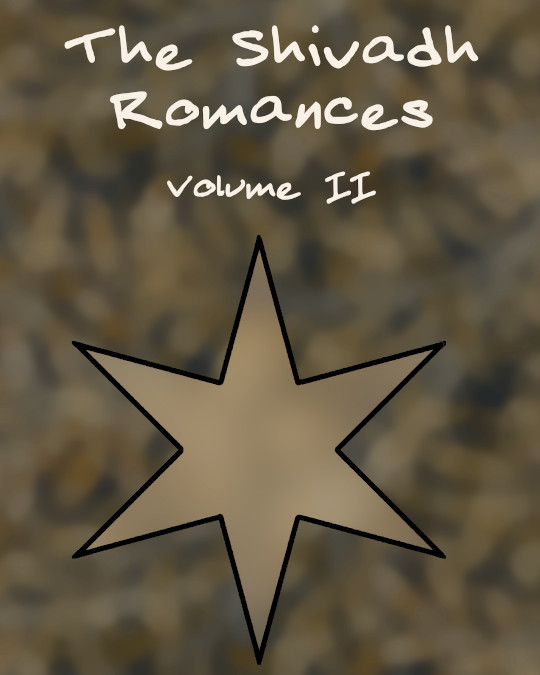
The Shivadh Romances: Volume II is now available for sale!
This book collects the fourth, fifth, and sixth books in the series, and is available in epub, paperback, and special-edition hardback.
Askazer-Shivadlakia is “the little country by the sea” — a coastal micronation perched between France and Italy, with Europe’s only Jewish royal family and a distinctly queer-friendly culture. The irreverent but earnest Shivadh people have recently elected a new king, and there are a lot of changes afoot for the country and its rulers.
The Twelve Points of Caleb Canto introduces Caleb, a young trans music teacher who accidentally enters Eurovision on behalf of The Ask, and his rival and new friend -- or maybe more -- Buck Haverd, the ambitious bad-boy competitor from the UK. Dinner At The Palace is the first collection of Shivadh short stories, spanning everything from Michaelis meeting his destiny in 1978 to Gregory and Eddie going cryptid-hunting in 2022. The Royals and the Ramblers tells the story of Gregory and Eddie's three royal weddings, and introduces Eddie's sister Monday, who is helping the kings have a royal heir and may or may not have a thing going on with Georgie, the palace head of security. And then there's Joan, the headstrong orphan who could use a couple of dads....
Read all three in a single volume!
Buy in ePub | Buy in Paperback | Buy in Hardback
Or if you’re interested in reading each novel individually, you can learn more about them and find purchase links here.
64 notes
·
View notes
Text
my mum showed us this book they made showing some of my grandpa's work as a photographer for spanish singers and I wanted to share with you some of them <3 below I'll add a little description of the artist in case you don't know who they are
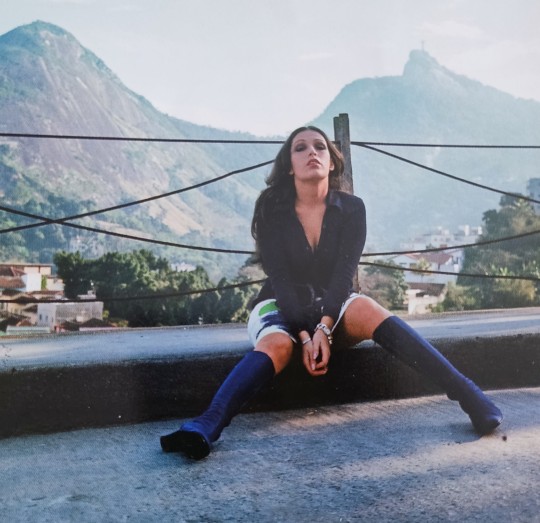
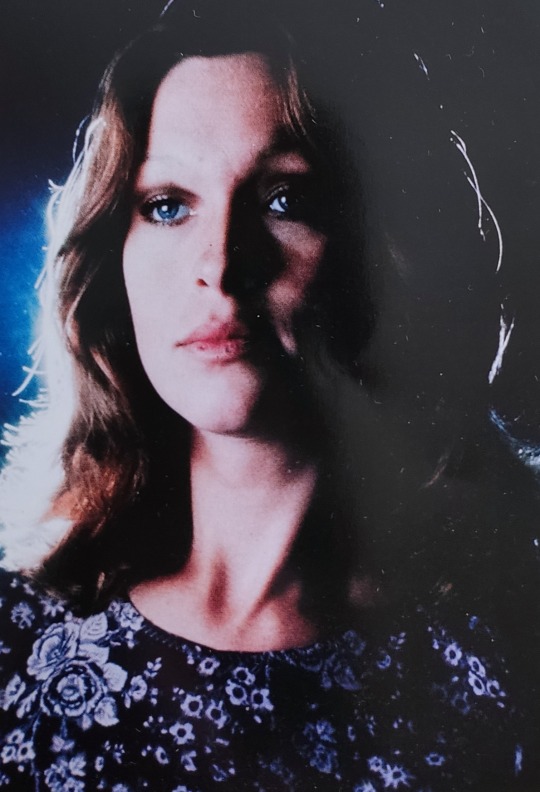
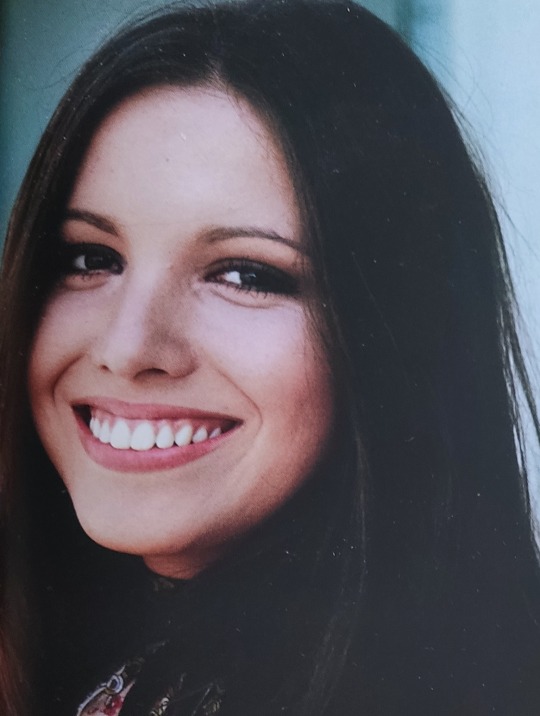
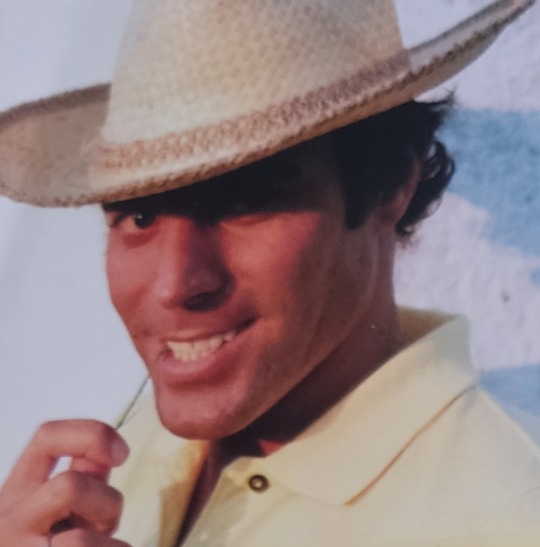
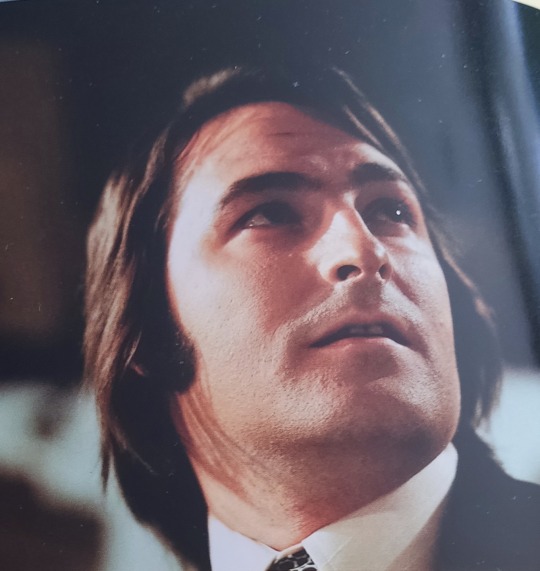
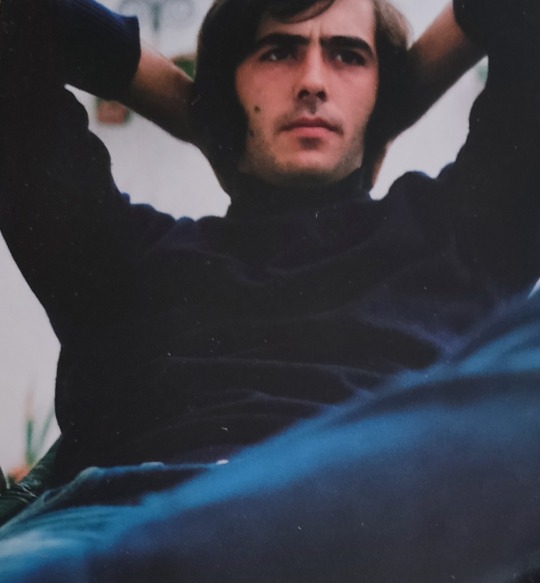
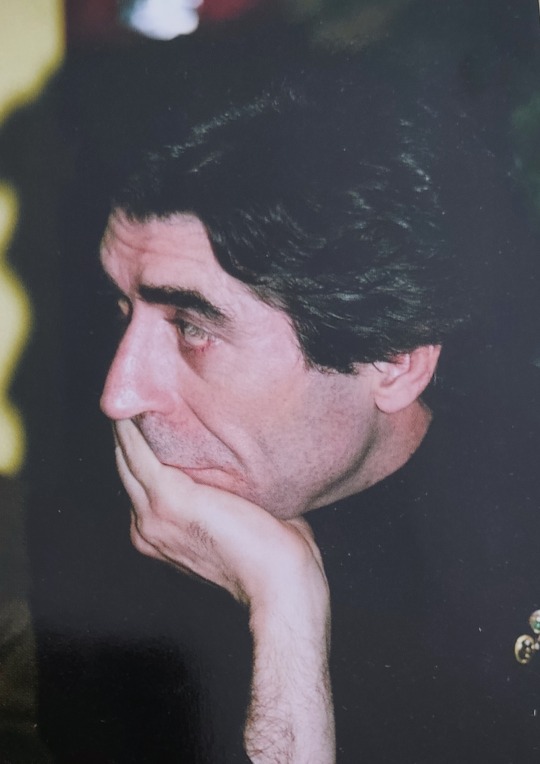
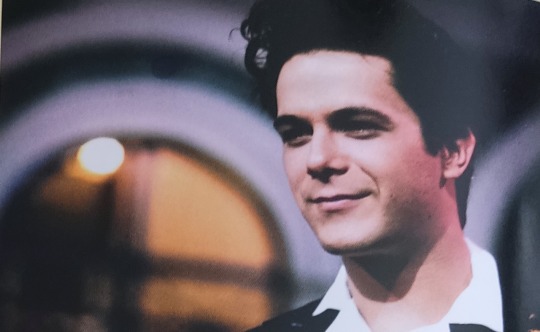
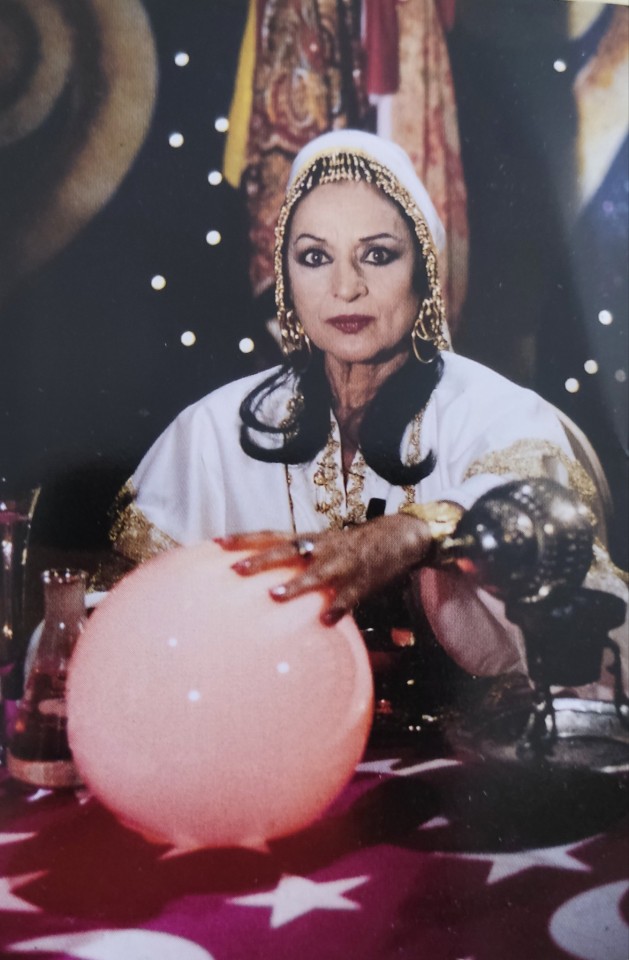
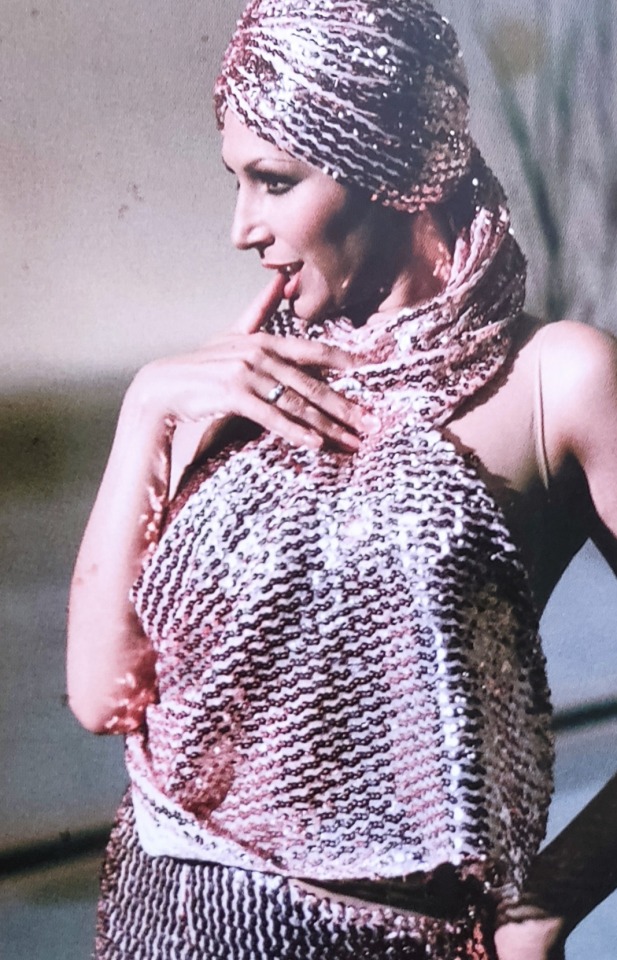
in order of appearance, they are:
massiel: she was the first spanish winner in eurovision in 1968 with 'la la la'. later in life she denounced the usage of the francoist regime of eurovision as a propaganda machine, and has remained vinculated to eurovision.
marisol: she was a child actress who suffered great abuse (as is usually the case) during her childhood and teenage years, working both as an actress and as a singer (she mostly starred - especially as a kid - in musical movies). she was also a member of the spanish communist party and has marxist ideas <3.
ana belén: she is one of the most iconic singers from the transition period (1975-1978) alongside her husband, víctor manuel (he was also photographied by my grandpa but i couldn't find a way his picture could fit). her songs have a strong social and political content, and she has also taken part in movies both as an actress and as a director. one of her most iconic songs is 'el hombre del piano', a spanish version of billy joel's piano man.
julio iglesias: he is perhaps one of the most successful spanish-speaking singers ever, having sold more than 150 million records. he is also part of the latin songwriters hall of fame. in 1983 he was celebrated for being the artist with songs in the most languages in the world, and in 2013 for being the best-selling male latin artist of all-time. oh and he has had a star in hollywood walk of fame since 1985, as well as having various grammys, latin grammys, billboard music awards, american music awards, etc. so yeah. he's a big deal (he's also the father of enrique iglesias who you might have already know). he represented spain in eurovision in 1970, with 'gwendolyne', which was his breakout hit.
nino bravo: he was one of the biggest spanish singers in the first half of the 70s, with massive hits and an incredible rise to fame that was tragically short, as he died in a car crash in 1973, when he was 28 (he only had 3 years of fame). my grandpa was a close friend of his, he even went to his wedding and appears in his memories. anyways, despite his short-lived fame, many of his songs are iconic and classics, possibly its best and most popular one is 'un beso y una flor', a karaoke classic.
joan manuel serrat: he is the singlemost imporant catalan singer-songwriter in history, with songs both in his native tongue and spanish (he's also my mother's favourite singer <3). he has a very poetic lyrical style, being influenced by poets like lorca, neruda, benedetti, machado, or alberti, and he even has some albums singing poetry of different spanish poets (the miguel hernández one is insane). he was also the pioneer of the nova cançó catalan movement, and he has been galardonated with highest honors in spain, as well as receiving the honorary latin grammy in 2014. his song 'mediterráneo' is for many - including myself - quite possibly the best spanish song ever (at least lyrically).
joaquín sabina: he is like a friend to me. my parents love him so they would always play his songs in long car rides and now i also love him his songs are incredible. he's actually a good friend of serrat and have toured together, their styles are similar only sabina isn't catalan (he's andalusian but lives in madrid) and his songs are more like stories than poems, he is inspired in baroque literature more than 20th century poets like serrat. just like serrat, he also has honorary awards by the ondas awards, the latin grammys, and various cities and regions in spain. it is literally impossible to choose only one of his songs to showcase here, but i'm afraid i have to go with 'y nos dieron las diez', one of his most popular songs, a karaoke classic, and the song we scream the loudest on the car with my family.
alejandro sanz: he is the most recent of all these singers, and currently the most famous spanish male singer i would say, only second to rosalía. he has won 22 latin grammys and 4 grammys, and he's collabed with artists such as alicia keys, shakira, or marc anthony. he's huge is what i'm trying to say lol. his breakout hit was 'corazón partío', in 1997, that still remains one of his most popular songs.
lola flores: she is everything to me istg. anyways. lola flores was a flamenco singer, dancer, and actress, that remains as one of the best folclóricas in history. just so you know, folclóricas were basically flamenco divas, think of them like that. she was iconic as fuck, antifa, feminist, and funny as hell. she is, as the english wikipedia says, 'a spanish pop culture icon'. you might also know her grand-daughter, actress alba flores. her most well-known song is probably 'ay pena, penita, pena'.
rocío jurado: just like lola flores, she is one of the most iconic and best folclóricas in history. just as her, she was both a singer and an actress, and she is remembered for having one of the best voices ever; in fact, in the year 2000 she won the new york times' prize 'the voice of the millenium' for best female voice of the 20th century. she is also iconic and regarded almost like a minor goddess in flamenco circles (just like lola flores). her most well known song is the iconic 'como una ola'.
#spanish music#massiel#marisol#pepa flores#ana belén#julio iglesias#nino bravo#joan manuel serrat#serrat#joaquin sabina#sabina#alejandro sanz#lola flores#rocio jurado#there's more but for some reason tumblr is back to only letting me have 10 pics per publication#which is deeply stupid#anyways. hope you like these :)#my grandpa was the best <3
15 notes
·
View notes
Text
Happy Birthday to me!
Here’s some (mostly positive) stuff about the year I was born:
Chinese Year of the Horse
United States Senate proceedings are broadcast on radio for the first time.
The People's Republic of China lifts a ban on works by Aristotle, William Shakespeare and Charles Dickens.
The first global positioning satellite, the Rockwell International-built Navstar 1, is launched by the United States.
The first radio episode of The Hitchhiker's Guide to the Galaxy, by Douglas Adams, is transmitted on BBC Radio 4.
San Francisco's City Council signs the United States's most comprehensive gay rights bill.
Dallas debuts on CBS, and gives birth to the modern day primetime soap opera.
At the 50th Academy Awards, Annie Hall won four Oscars, including Best Picture, Best Director (Woody Allen), and Best Actress (Diane Keaton). On the other hand, Star Wars won six Oscars, including Best Film Editing, Best Visual Effects, and Best Art Direction. Finally, Madame Rosa (France) won an Oscar for Best Foreign Language Film.
Izhar Cohen & the Alphabeta win the Eurovision Song Contest 1978 for Israel with their song A-Ba-Ni-Bi.
The Bee Gees' album, Saturday Night Fever, went #1 for 24 weeks.
Sarajevo is selected to host the 1984 Winter Olympics, and Los Angeles is selected to host the 1984 Summer Olympics.
Mavis Hutchinson, 53, becomes the first woman to run across the U.S.; her trek took 69 days.
The Dallas Cowboys won the Super Bowl, the Washington Bullets were the NBA champs, and the Montreal Canadiens clinched the Stanley Cup.
Garfield's first comic strip, originally published locally as Jon in 1976, goes into nationwide syndication.
Charon, a satellite of Pluto, is discovered.
The rainbow flag of the LGBT movement flies for the first time (in its original form) at the San Francisco Gay Freedom Day Parade.
Louise Brown, the world's first test tube baby, is born in Oldham, Greater Manchester, UK.
Pope John Paul I succeeds Pope Paul VI as the 263rd Pope.
NASA unveiled the first group of women astronauts: Shannon W. Lucid, Margaret Rhea Seddon, Kathryn D. Sullivan, Judith A. Resnik, Anna L. Fisher, and Sally K. Ride.
Pope John Paul I dies after only 33 days of papacy.
United States President Jimmy Carter signs a bill that authorizes the minting of the Susan B. Anthony dollar.
Pope John Paul II succeeds Pope John Paul I as the 264th pope, resulting in the first Year of Three Popes since 1605.
Abolitionist Harriet Tubman became the first African-American woman to be honored on a U.S. postage stamp.
Chicago serial killer John Wayne Gacy is arrested.
Cabbage Patch Kids are first created.
The video game Space Invaders launched a craze for computer video games.
The first email system was created at University of Medicine and Dentistry of New Jersey in Newark, N.J.
The first spam email was sent by Gary Thuerk, a marketing manager who was promoting a new model of computer. Thuerk sent the correspondence out to about 600 prospects via ARPANET, and “complaints started coming in almost immediately.”
Illinois Bell Company introduced the first-ever Cellular Mobile Phone System.
Pulitzer Prize was awarded to Carl Sagan for his book, The Dragons of Eden.
At the 30th Primetime Emmy Awards, All in the Family (CBS) won an Emmy for Outstanding Comedy Series, and The Rockford Files (NBC) won an Emmy for Outstanding Drama Series. Carroll O’Connor (All in the Family) won an Emmy for Outstanding Continued Performance by an Actor in a Leading Role in a Comedy Series, and Jean Stapleton (All in the Family) won an Emmy for Outstanding Continued Performance by an Actress in a Leading Role in a Comedy Series.
At the 35th Golden Globe Awards, The Turning Point won a Golden Globe for Best Motion Picture Drama, and The Goodbye Girl won a Golden Globe for Best Motion Picture Comedy or Musical.
Actor Ashton Kutcher was born on Feb. 7, 1978 in Cedar Rapids, Iowa.
Actor James Franco was born in Palo Alto, Calif. on April 19, 1978.
Actor Jason Biggs was born on May 12, 1978, in Pompton Plains, N.J.
Actress Zoe Saldana was born on June 19, 1978.
Singer Nicole Scherzinger was born on June 29, 1978.
Actor Josh Harnett was born on July 21, 1978.
NBA star Kobe Bryant was born on Aug. 23, 1978.
Singer Usher was born on Oct. 14, 1978.
Actress Katherine Marie Heigl was born in Washington, D.C., on Nov. 24, 1978.
Popular movies included: Grease, Saturday Night Fever, Close Encounters of the Third Kind, and Star Wars (the first one), Superman: The Movie, and Halloween.
The most popular baby names for boys were Michael, Jason, Christopher, David, and James.
The most popular baby names for girls were Jennifer, Melissa, Jessica, Amy, and Heather.
8 notes
·
View notes
Text
So I watched a video of an american explaining Eurovision and it was ok and all, but they also were
1. First time watchers
2. They only used sources from other americans. Like, they talked about "oh I tried asking some friends and no one knew, or they didn't even know about esc, so I don't know everything about this"
And it's like... fine. It was a fun video and all and I guess it can be easier for an american to explain to other americans rather than a european explaining to them. But I also kind of had this itch in my fingers about how... there's so many GOOD VIDEOS out there from people who have grown up with the contest explaining it. And NOT ONLY the "clean, super fun non-political contest <3" videos, but videos actually going into the real CONTROVERSIES!
People boycotted due to Israel this year, but I can promise you Israel's participation has ALWAYS been controversial. Since the 70s when they first competed. When they won in 1978, Jordanian broadcasting, instead of showing their win, started showing a slideshow of flowers and lied that Belgium had won. This is soon 50 years ago.
There's also been SO many voting scandals, dating back to literally the 1960s. No matter how non-political they claim to be, they never ever have been.
Not to mention how "inclusive and lgbtq+ friendly" they claim to be, but... trust me, they're not. THIS YEAR, they banned the fucking nonbinary flag, and the eventual winner of the contest, a nonbinary artist from Switzerland, snuck it in behind their backs.
There is a GREAT video I recommend you all to watch.
youtube
They've always been so double faced. This is not new info. This video also made me, who has grown up with the contest, learn a lot more that I never knew before.
It is a contest that so many of us hold dear, but it has never, ever, been that sugar sweet and "inclusive", no matter what the media portrays it as.
Also, if someone wanted to know what actually went down during THIS YEAR ALONE (since this year had way more controversies than a usual year due to MANY REASONS), there's a guy that actually was there, working for the press, who tells ALL about both what happened on screen and OFF SCREEN.
youtube
#really recommend especially americans this#since y'all seemed to have discovered this competition exists during the recent years#and it's fun you wanna inform each other but there's also some very informative videos#from actual europeans who grew up with it#the controversies did not start this year. it didn't start with russia being banned.#it goes WAAAAAY BACK.#esc#Youtube
11 notes
·
View notes
Text
Welcome to the Eurovision Song Bracket!
This will be a fairly large bracket, consisting of two "teams" of 68 songs for a total of 136 competitors!
The first team has been preselected, and will consist of all previous winners or popular vote winners if applicable.
This means that if your favorite song won, you do not need to submit them (a couple of exceptions apply, see list at the bottom/read more for details)
Submissions are closed!
Rules!
- Entries must have been a part of the main competition of Eurovision of any year (I might do a MGP mini bracket if the people want that)
- Once again, you do not need to submit winners, they are (mostly) automatically in. Again, see bottom for details and explanations.
- You may submit multiple songs, but please don't send the same song over and over.
- Propaganda is highly encouraged! There is a spot for it in the submission form, and adding it on to the poll itself or sending an ask is also allowed. You may send a DM, but I'll probably be slow to respond that way.
How it Works!
- There will be multiple brackets of 34 songs
- Each of the preselected winners will be randomly against one of the submitted songs. Pairings will be decided through number assignment and a random number generator.
- Vote for your favorite! I will include links to the songs in the poll so you can listen to both before voting. The winner will move onto the next round until we find the winner of that bracket.
- Once all brackets are complete, the winners of their individual brackets will go onto the finals to determine the (unofficial) Ultimate Eurovision Song Winner!
- There will be a preliminary around, as 1969 (hehe nice) had a four way tie, so we will need to determine which of those four will represent that year!
Tagging some other brackets to get the word out
@animalcrossingshowdown @ultimate-soup-showdown @least-sexy-man-competition @soulmatebracket @irlcats-bracket @little-cat-showdown @bestvegetablepoll @baby-brawl-bracket @died-but-not-dead-tournament @unusannusbracket
Click the read more for the list of songs that are automatically in the bracket!
(The colors are just to make it less of a wall of text and easier to read)
(Please let me know if a different color would work better)
1956 - “Refrain” by Lys Assia (Switzerland)
1957 - “Net Als Toen” by Corry Brokken (Netherlands)
1958 - “Dors, Mon Amour” by André Claveau (France)
1959 - “Een Beetje” by Teddy Scholten (Netherlands)
1960 - “Tom Pillibi” by Jacqueline Boyer (France)
1961 - “Nous Les Amoureux” by Jean-Claude Pascal (Luxembourg) 1962 - “Un Premier Amour” by Isabelle Aubret” (France)
1963 - “Dansevise” by Grethe and Jøren Ingmann (Denmark)
1964 - “Non ho l'età” by Gigliola Cinquetti (Italy)
1965 - “Poupée de cire, poupée de son” by France Gall (Luxembourg) 1966 - “Merci, Chérie” by Udo Jürgens (Austria)
1967 - “Puppet on a String” by Sandie Shaw (UK)
1968 - “La la la” by Massiel (Spain)
1969 – [FOUR WAY TIE – SPAIN UK NETHERLANDS FRANCE, PRELIM POLL] “Vivo Cantando” by Salomé (Spain) ; “Boom Bang-a-Bang” by Lulu (UK) ; “De Troubadour” by Lenny Kuhr (Netherlands) ; “Un jour, un enfant” by Frida Bocara (France)
1970 - “All Kinds of Everything” by Dana (Ireland)
1971 - “Un banc, un arbre, une rue” by Séverine (Monaco)
1972 - “Après Toi” by Vicky Leandros (Luxembourg)
1973 - “Tu te reconnaîtras” by Anne-Marie David (Luxembourg)
1974 - “Waterloo” by ABBA (Sweden)
1975 - “Ding a Dong” by Teach-in (Netherlands)
1976 - “Save Your Kisses For Me” by Brotherhood of Man (UK)
1977 - “L'Oiseau et l'Enfant” by Marie Myriam (France)
1978 - “א-ב-ני-בי / A-Ba-Ni-Bi” by Izhar Cohen and the Alphabeta (Israel)
1979 - “הללו��ה /Hellelujah” by Milk and Honey (Israel)
1980 - “What's Another Year” by Johnny Logan (Ireland)
1981 - “Making Your Minds Up” by Bucks Fizz (UK)
1982 - “Ein bißchen Frieden” by Nicole (Germany)
1983 -Si la vie est cadeau” by Corinne Hermès (Luxembourg)
1984 - “Diggi-Loo Diggi-Ley” by Herreys (Sweden)
1985 - “La det swinge” By Bobbysocks! (Norway)
1986 - “J'aime la vie” by Sandra Kim (Belgium)
1987 – “Laß die Sonne in dein Herz“ by Wind (Germany) [REPEAT WIN BY JOHNNY LOGAN(Ireland), USING 2ND PLACE]
1988 - “Ne partez pas sans moi” Céline Dion (Switzerland)
1989 - “Rock Me” by Riva (Yugoslavia)
1990 - “Insieme: 1992” by Toto Cutugno (Italy)
1991 – “Fångad av en stormvind” by Carola (Sweden)
1992 - “Why Me?” by Linda Martin (Ireland)
1993 - “In Your Eyes” Niamh Kavanagh (Ireland)
1994 - “Rock 'n' Roll Kids” Paul Harrington and Charlie McGettigan (Ireland)
1995 - “Nocturne” by Secret Garden (Norway)
1996 - “The Voice” by Eimear Quinn (Ireland)
1997 - “Love shine a Light” by Katrina and the Waves (UK)
1998 - “דיווה /Diva” by Dana International (Israel)
1999 - “Take Me to Your Heaven” by Charlotte Nilsson (Sweden)
2000 - “Fly on the Wings of Love” by Olsen Brothers (Denmark)
2001 - “Everybody” by Tanel Padar, Dave Benton, and 2XL (Estonia)
2002 - “I wanna” by Marie N (Latvia)
2003 - “Everyway That I Can” by Sertab Erener (Turkey)
2004 - “Wild Dances” by Ruslana (Ukraine)
2005 - “My Number One” by Helena Paparizou (Greece)
2006 - “Hard Rock Hallelujah” by Lordi (Finland)
2007 - “Молитва / Molitva” by Marija Šerifović (Serbia)
2008 - “Believe” by Dima Bilan (Russia)
2009 - “Fairytale” By Alexander Rybak (Norway)
2010 - “Satellite” by Lena (Germany)
2011 - “Running Scared” by Ell and Nikki (Azerbaijan)
2012 - “Euphoria” by Loreen (Sweden)
2013 - “Only Teardrops” by Emmelie de Forest (Denmark)
2014 - “Rise Like a Phoenix” by Conchita Wurst (Austria)
2015 - “Heroes” by Måns Zelmerlöw (Sweden)
2016 - “1944” by Jamala (Ukraine)
2017 - “Amar pelos dois” by Salvador Sobral (Portugal)
2018 - “Toy” by Netta (Israel)
2019 - “Arcade” by Duncan Laurence (Netherlands)
2020 – [CANCELLED]
2021 - “Zitti e buoni” by Måneskin (Italy)
2022 - “Стефанія / Stefania” by Kalush Orchestra (Ukraine)
2023 - “Cha Cha Cha” by Käärijä (Finland) [Second highest popular vote ever, also repeat win by Loreen(Sweden)]
55 notes
·
View notes
Text




The Bad Old Days, Co-Co | United Kingdom, Eurovision Song Contest Concours Eurovision de la Chanson 1978
#hello hello we're back in businesses over here#took a small break from the old eurovisions to enjoy the current one#eurovision#eurovision 1978#esc#uk#co-co#uk '78#gif#op#70s#come on guys! there was an error in the caption and no one was going to tell me??
7 notes
·
View notes
Text

🇮🇱 Izhar Cohen & Alpha Beta - A-ba-ni-bi
#Izhar Cohen#Izhar Cohen & Alpha Beta#A-ba-ni-bi#israel esc#esc israel#israel eurovision#eurovision israel#esc 1978#eurovision 1978#i love their little dance#was never really a big fan of this winner but honestly? its better than i remember
19 notes
·
View notes
Text
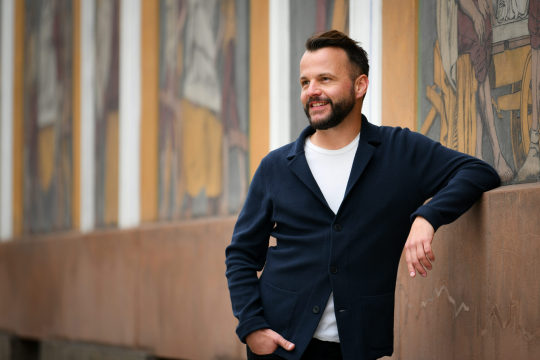
Bryan Rice
Gender: Male
Sexuality: Gay
DOB: 29 May 1978
Ethnicity: White - Danish
Occupation: Singer, songwriter
Note: Competed in Dansk Melodi Grand Prix to try and represent his country for Eurovision in 2010 and 2014, but didn't win.
29 notes
·
View notes
Text
Eurovision 2003 - Number 6 - Markus Landgren - "Television"
youtube
Another year, another budding pop career. Prior to Melodifestivalen, Markus Landgren had a single single out. That was in 2002, and it was released in conjunction with his appearance on the first season of Fame Factory in Sweden. Even though he didn't win, he was popular enough to still have the recognition factor a year later and get an invite into the Melfest carnival.
The song is by husband and wife team Pernilla and Peter Sahlin (not the painter!), Television is a bit of an outdated harangue of television addiction. It has a holier than thou attitude that feels a little bit like an irreverent sermon delivered while Markus clings to that microphone as hard as he can flanked by two pillars of TVs. The reference to President Clinton comes two years after he left office. The backing singers on the TVs have make-up and hair and moves that places this song somewhere between 1978 and 1984 in attitude, visuals and inspiration. Bugglesesque.
Which is, of course, probably why I like it so much. It's triumphant chorus is admitting that despite the lyrics, Markus is totally into channel surfing and truly loves to trash his mind up with lowest common denominator reality shows and even quite likes the shopping channels. It's drama, it's knowing hypocrisy, it's clever writing - let's not underestimate the lyrical skill on show in the verses here. The drama-strings accompany some fun turns phrase and near the knuckle commentary. Having fun with words is not a Eurovision nor a Melfest speciality.
Not being typical of Melfest, this song did struggle. It finished 4th in its heat, which was enough to get it through to the Viewers' Choice final. It could only finish 7th in that, and so Markus's Melfest journey ended after one song.
If this feels a it like preaching then perhaps that's because after this, Markus ditched the music industry career and turned to the church. Specifically the Swedish Equmenia Church formed in 2011 and of which Markus is a pastor. One of the main features of the church is that it has a song catalogue, which grows every year, that is distributed around the member churches allowing them to learn new song.
#Youtube#esc#esc 2003#eurovision#eurovision song contest#riga#riga 2003#national finals#Sweden#Melodifestivalen 2003#Markus Landgren
4 notes
·
View notes